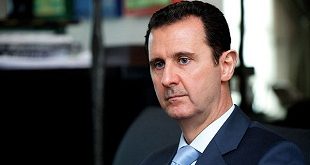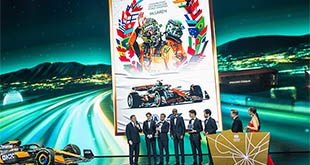
By Andrew M. Mwenda
I am in Rwanda to attend a dialogue between journalists and government on the state of media freedom in Rwanda. The subject of press freedom in Rwanda evokes strong passions especially given that democracy in Africa has been constructed like a religion. Debate ignores critical reforms in the economic and administrative fields that actually create a more enduring structural basis for democracy.

Post-genocide Rwanda has carried out the most comprehensive economic and administrative reforms which have the greatest potential for establishing a firm foundation for democratic politics. For instance, President Paul Kagame wants IT to be the basis of Rwanda’s economy. This means that human capital (education, skills and the willingness to apply them) will be the drivers of economic activity. If he pursues this strategy successfully, he will have established the most enduring structural basis for democratic politics. Why?
In an economy based on human capital, production targets cannot be imposed; their attainment must be elicited. In a workplace based on human skill and talent, a supervisor cannot make someone think faster or more intelligently. The very nature of the industry makes the whip of authoritarian power unproductive. To increase the productivity of a knowledge worker, the supervisor has to listen to that worker about the kind of environment that makes her tap her talent optimally. In short, the supervisor has to concede decision making power to the knowledge worker i.e. to be democratic.
Harvard’s Robert Bates has observed this in the structure of companies arguing that one only needs to compare a steel mill in the Rust Belt of America with a high-tech firm in the Silicon Valley. The former is regimented and authoritarian, the later is decentralised with the pace and organisation of work determined largely by employees themselves. The more the element of human skill in the production process, the more employee-driven i.e. democratic the economic structure will be.
The opposite of human capital to democracy is ownership of land. Because the use of land does not require great human skill, the most repressive forms of labour e.g. slavery, are relatively more efficient with agricultural technology. Any reform that undermines the power of landholders is technically a democratic effort. In Rwanda, when RPF came to power, its barons acquired large chunks of land. In 2005, government passed a land reform programme that cut down the land holding of everyone and proceeded to redistribute land from powerful army officers to ordinary peasants and in the process eliminated the development of a powerful land owning gentry.
By suffocating the growth of a landed-owning class in agriculture and then promoting the use of ICT as the basis of the country’s economy, Kagame has set the economic structure ‘ and therefore the politics of Rwanda ‘ on the road to democracy. With massive investment in education from primary, secondary to university, underpinned by private sector growth, Kagame is fostering the growth of an educated middleclass in Rwanda, an important structural foundation for democracy.
As I write this article, Rwanda is involved in one of the most thoroughgoing democratisation projects not yet seen in Africa ‘ the spread and usage of computer and internet technology. Today, Rwanda has the highest density of fibre optic cables network of any country in the Third World ‘ including China. With government’s one-laptop-per-child programme, Rwanda is spreading computer and internet usage to the far reaches of the country. Given that the computer and the mobile phone are converging into one information platform, the technological foundations of free speech are being laid.
These efforts are not seen as democratic reforms because most observers are obsessed with Kagame’s putative relationship with the press. They ignore the fact that the policy and technological reforms he is fostering are actually creating the structural basis for democratic politics. The sadness of the debate on democracy in Africa is that it focuses too much on personal behavior rather than its structural foundations.
The most democratising countries in the last quarter of the 20th century were all absolute dictatorships in 1985 ‘ South Korea, Chile, Taiwan and Indonesia. The common feature among them was they sought political security in economic transformation. In so doing, they inadvertently unleashed the social forces ‘ a student and youth movement, labour and industrial classes, and educated middle class etc that democratised politics. If any of our democracy evangelists had visited any of these countries in 1985 using their analytical tools, they would have predicted violent conflict and anarchy.
As the reader may notice, I am ignoring the discussion about whether Kagame is behaving like a democrat or an autocrat. That is entirely beside the point. His personal behaviour is subject to multiple interpretations depending on the biases of the observer. Clearly, there are many aspects of his rule that are authoritarian and many others that are democratic. This should be obvious even to a child of six because democracy is a process; Kagame cannot declare that ‘let there be democracy’ and it falls like rain to irrigate all the political fields of Rwanda.
By focusing on transient obstacles and ignoring the structural opportunities for better governance, many African opposition groups have failed to take advantage of the new technologies to foster democracy. The spread of internet technology, private FM radio stations and the mobile phone have not been fully utilised for political mobilisation. Where African entrepreneurs have invented ‘Mobile Money’ that is transforming economic life on the continent, our democracy activists and opposition politicians are yet to invent its equivalent in politics to challenge the status quo.
The market in Africa has been innovative largely because it is not courted by foreign aid. Thus, the best innovations in telecommunications are found on our continent. I suspect that there has been limited innovation in politics to march what we are seeing in business because the political marketplace has been highly influenced by foreign assistance. Our governments, opposition parties and civil society do not seek innovative ways to handle their challenges because they have an easy option of turning to foreign donors for assistance.
(In our November 19-25 edition in this column, we erroneously stated that the ‘combined opposition has candidates in only 80 districts.’ The correct number is 53 districts. We regret the error. ‘ Editor)
 The Independent Uganda: You get the Truth we Pay the Price
The Independent Uganda: You get the Truth we Pay the Price


